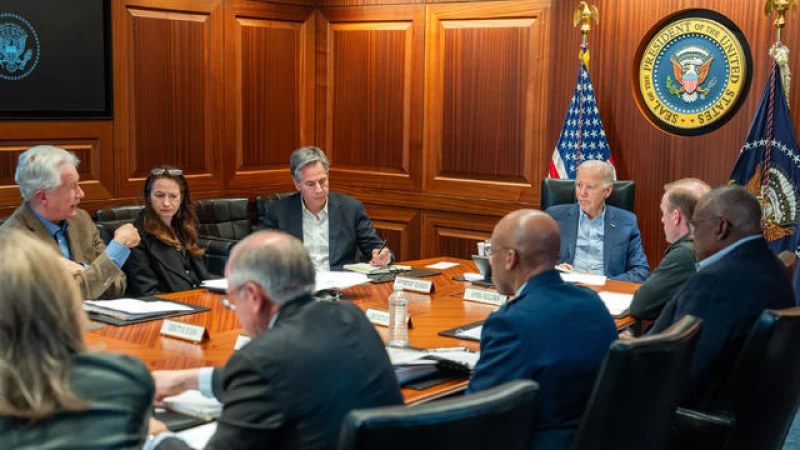Washington — In the aftermath of the historic airstrikes carried out by Iran against Israel, President Biden reassured Israeli Prime Minister Benjamin Netanyahu that the U.S. would not partake in retaliatory actions against Iran, as per a senior administration official.
Israel reported minimal damage to a military base following the launch of over 300 missiles and drones from Iran towards Israel on Saturday night, with most being intercepted before reaching Israeli territory. This counterattack marked Iran's first direct offensive against Israel.
During the call with Netanyahu, President Biden condemned the Iranian assault while emphasizing that the U.S. had assisted in intercepting the majority of the incoming drones and missiles, as stated in a White House release. The President reiterated the U.S.'s unwavering support for Israel's security.
John Kirby, the National Security Council coordinator for strategic communications, described the conversation between the President and Netanyahu as positive, focusing on Israel's successful defense against the airstrikes. Kirby also mentioned that President Biden highlighted the U.S.'s efforts to prevent a wider regional conflict during the call.
"The Prime Minister is well aware that the president is not looking for a conflict with Iran, that the president doesn't want the tensions to escalate anymore, and that the president is doing everything — and has since the seventh of October — to try to keep this from becoming a broader regional war," Kirby told Margaret Brennan on "Face the Nation" on Sunday, adding that the U.S. will take "whatever steps we need to take" to protect American troops, ships and facilities in the region.
The president convened with G7 leaders on Sunday to coordinate a diplomatic response to the attack. In a joint statement after the meeting, the leaders said that Iran has "further stepped toward the destabilization of the region and risks provoking an uncontrollable regional escalation," adding that they would continue to work to "stabilize the situation." The leaders demanded that Iran stop its attacks, noting that they stand ready to "take further measures" in response to additional actions. The United Nations Security Council is also set to hold an emergency meeting Sunday afternoon.
Former U.S. Central Command Commander Gen. Frank McKenzie, who also appeared on "Face the Nation" on Sunday, advised Israel to exercise restraint after the Iranian attack.
"The fact of the matter is Israel can name the price they want to exact, the wide gap between Iranian zealotry and enthusiasm and Israeli competence has now been laid bare for all to see," McKenzie said. "So the Israelis will be able to do what they want. Sometimes when you're in that position, showing some restraint is the best strategic option that you can take."
Following an unprecedented airstrike from Iran, McKenzie stated that Israel is "stronger this morning than they were yesterday" after successfully intercepting the majority of the attack, which served as a "major combat test."
Describing the attack as a significant one by Iran, McKenzie emphasized that it was close to their maximum effort. He added, "Iran could not replicate last night's attack tonight, if they had to."
This incident unfolded over six months into Israel's ongoing conflict with Hamas. Pressure has been mounting on President Biden from within his party to take a firmer stance against Israel's government, particularly in light of the high civilian casualties in Gaza following previous attacks. A recent CBS News/YouGov poll, conducted before Iran's drone and missile strike on Israel, revealed a growing number of Americans urging the president to push for a halt to military actions in Gaza.







